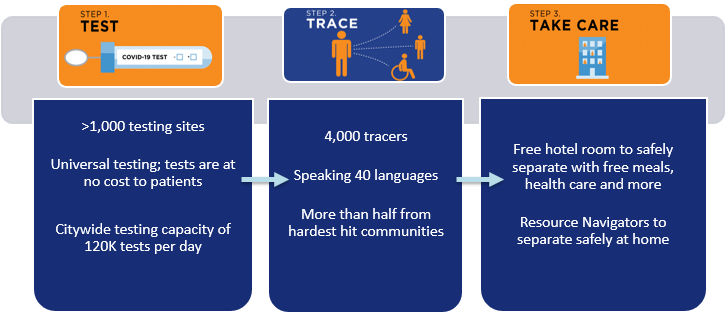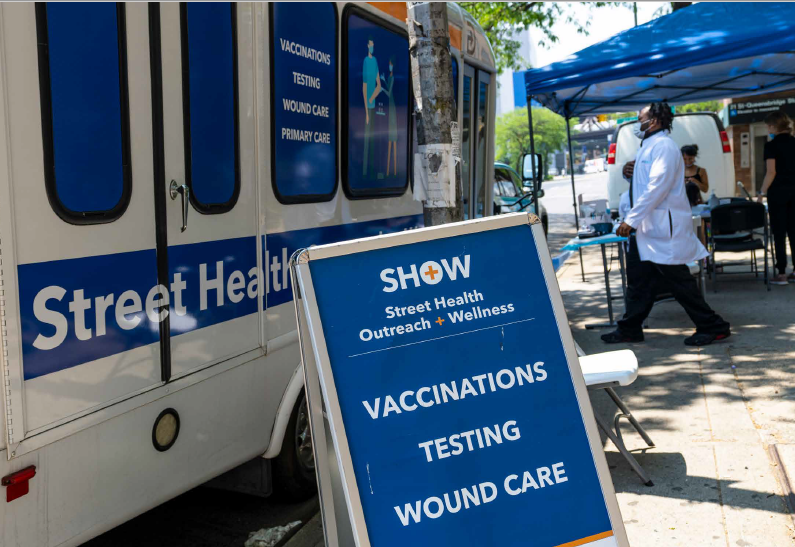
On June 1, 2020, the Test & Trace Crops was launched with the goal to suppress the virus, then delay and diminish future waves in New York City. Throughout the COVID-19 pandemic, Test & Trace has continued to recognize the need to focus available resources onto where there are outbreaks and on areas of decreased testing and accessible vaccines. As hotspots constantly changed, and the needs of patients shifted, adaptation became the name of the game.
Building a mobile fleet
Testing and response to outbreaks is about location and being nimble in order to have a quick, efficient way to combat transmission.
Testing is a tool that gives a line of sight toward positive cases, and can therefore be linked to contact tracing. Tracers can then take these positive results and connect them throughout their communities. Especially at the beginning of the pandemic, there was a need for a higher capacity for testing that would also deliver a good turnaround time for the results that would assist tracers in identifying cases and contacts before the virus spread further.
To keep up with these everchanging needs, Test & Trace built a mobile fleet with more than 40 units that offered rapid and PCR testing, and eventually more than 30 units that administered COVID vaccines. With the continued success of these efforts, mobile units that had both COVID testing and vaccines were built.
An evolving response
The response to COVID is always evolving. Some uncertainty still remains. Patients always ask, “What do I do?” if they test positive. It is an important part of Test & Trace’s job to keep a patient’s best interest at heart, and to increase their access to quality care.
The mobile program progressed and adapted with the pandemic, both growing and broadening the scope of services. Based on feedback, mobile services have been improved and adapted. Mobile units are placed in locations the community trusts, and have partnered with community-based organizations to deploy to highest-need areas of the city. Even more recently, mobile units can partner with restaurants and theaters too. The use of mobile units for bringing COVID vaccines to homes is also growing.
The program has expanded into Street Health Outreach and Wellness (SHOW), which focuses on bringing COVID testing and vaccines to marginalized and vulnerable communities of street homeless individuals. These units provide services such as wound care, mental health services, food, and links to social services. In addition, they offer primary care and harm reduction services.
By bringing supplementary services that are of value to communities, such as wound care and food, it helped to build trust so that other services relating to COVID vaccine distribution and mental health could be given later on.

A SHOW mobile unit parked on the street.
Moving forward, Test & Trace plans to expand upon the mobile unit fleet with the intention of creating primary care models that focus on vulnerable populations. Having an adaptable force of moving clinics has proven to be a vital tool in fighting back the pandemic, and has a promising future in revolutionizing healthcare delivery.